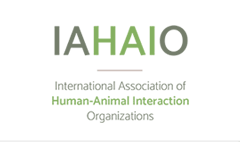Abstract
Veterans of the armed forces may have experienced a range of physical and psychological traumas during their service, which can lead to long-standing problems with health and well-being, sometimes compounded with challenges accessing and engaging with support. Animal-assisted therapies (AAT) may offer an engaging, holistic approach that could be helpful for the veteran population. The aim of this scoping review is to examine the existing research on the effects of AAT on the health and well-being of veterans.
Method: The databases EMBASE (OVID), Web of Science, Cinahl, Cochrane and Medline were searched in October 2020. Articles were screened against inclusion / exclusion criteria (based around language, accessibility, inclusion of veterans, use of AAT) and critically appraised using MMAT v.2018. Data were extracted and analyzed qualitatively.
Results: Thirteen articles met the inclusion criteria. The studies showed heterogeneity in design and delivery, including nature of interaction with the animal; therapy duration; goals assigned to each session; and type and number of staff present. The most common animals used were horses, then dogs. The most evaluated health outcomes were post-traumatic stress disorder (PTSD) symptoms, depression symptoms and change in quality of life. Short-term results included lower scores on the Depression Anxiety Stress Scale-21 and PTSD checklist. Where assessed, participants enjoyed the therapy programs.
Conclusion: This review reveals that currently, clear conclusions on the efficacy of AAT are lacking due to the heterogeneity of programs, session characteristics, small sample sizes and methodological limitations. AAT does appear to show promise, particularly for the short term treatment of psychosocial problems of veterans, but this needs more systematic, robust research and the development of protocols to establish cost effectiveness, feasibility and manualizable protocols.
Recommended Citation
Fonseka, Brooke; Marshall, Fiona; and Edwards, Laura J.
(2022)
"The Effects of Animal- Assisted Therapy on the Health and Well- Being of Military Veterans: A Systematic Scoping Review and Recommendations for Future Research,"
People and Animals: The International Journal of Research and Practice: Vol. 5
:
Iss.
1,
Article 12.
Available at:
https://docs.lib.purdue.edu/paij/vol5/iss1/12


